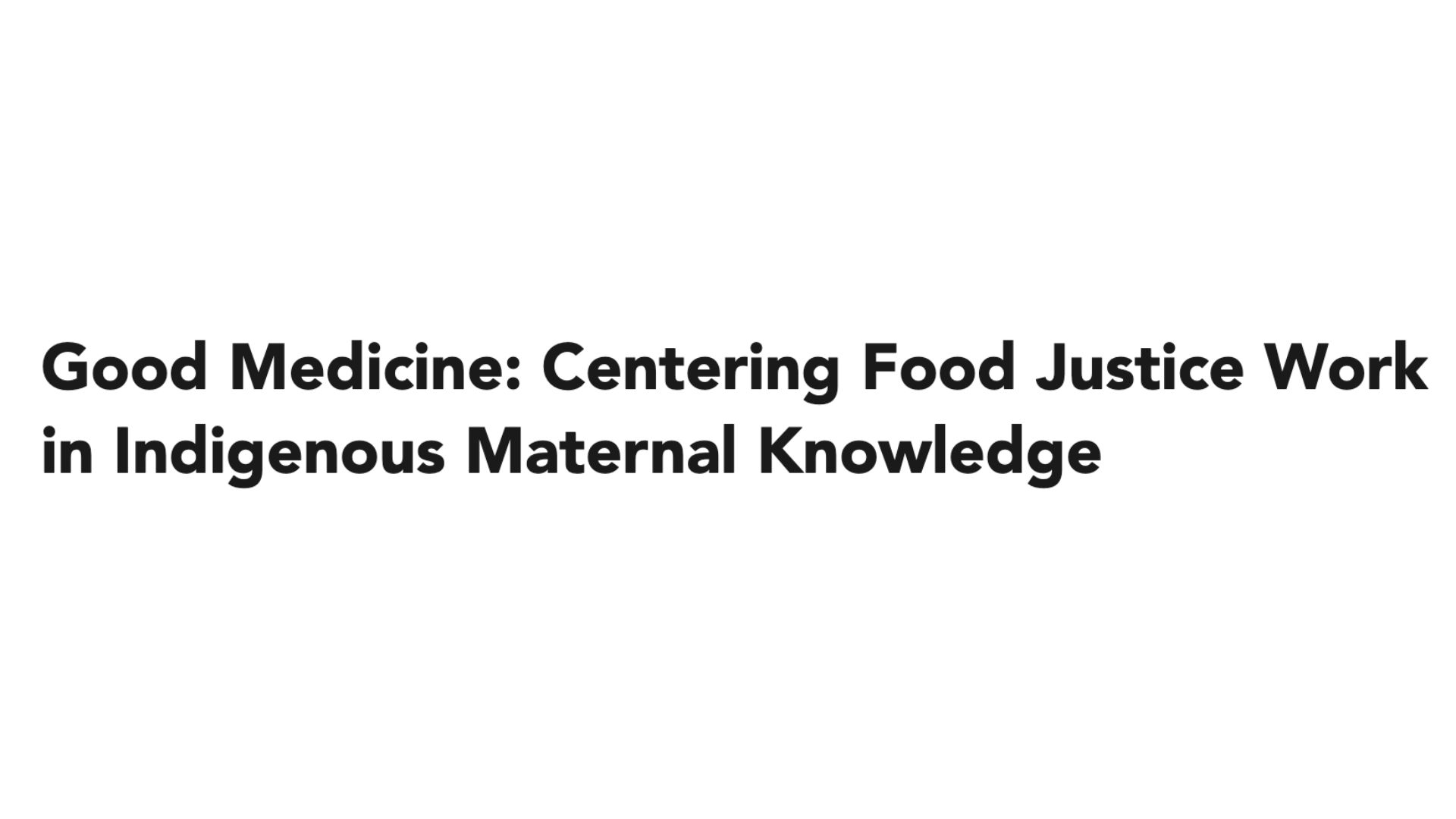Good Medicine: Centering Food Justice Work in Indigenous Maternal Knowledge

The Cihuapactli Collective (CC) began seven years ago in Phoenix, Arizona, in response to the call of a mother, CC’s co-executive director, Maria Parra Cano.
The collective took shape two months after Parra Cano gave birth. Her mother had recently passed away, and she was experiencing the baby blues. In response to her call, 14 founding CC members began meeting in coffee shops to discuss healing ourselves. Conversations regarding womb health and parenting in an urban Indigenous setting led to the development of community workshops that centered women’s and partum health. Over time, CC began to be recognized for its work, and the organization expanded to serve BIPOC families in Phoenix from womb to tomb.
During its first three years, CC members focused on healing our tight-knit Native community. Many of us had known one another for decades; we were part of the same community, spiritual, and organizing circles. Now, in our baby making and child rearing years, ancestral knowledge took center stage. Every member brought to the collective cihuapactli, or women’s medicine in the traditional language Nahuatl of the Aztec/Mexica. Just as many of us had done before, we worked in the community and as a community.
We possessed ancestral knowledge from a variety of nations. Most founding members hailed from tribes in the present-day nations of Mexico and Guatemala, such as Mexica/Aztec, Texcocatl, Yaqui/Yoeme, Purepecha, Raramuri, Tarahumara, and Maya. Tribes from Colombia, the Philippines, and the Caribbean were also represented. CC also has members from northern tribes such as O’odham and Lakota. Nearly seven years after its founding, CC has served and represented upwards of 55 Native nations across the globe, while navigating a system that does not always recognize us as being Indigenous enough.
-
By
Enjolie Lafaurie and Maria Parra Cano, Nonprofit Quarterly
-
Published
Feb 16, 2023
-
Subject Area
- Food & Nutritional Support
- Food Security & Nutritional Supports
- Social Connectedness & Social Isolation
- Information, Referral, & Advocacy
- Indigenous Peoples & Indigenous Relations
-
Audience
- Service Providers (Non-profits, Community Organizations, Local government)
- Caregivers, Seniors & Volunteers
- Government (Politicians, Policy Makers) and Health Authorities
-
Category
- Success Stories
- First Nations/Aboriginal Communities
Newsletter
Sign up for the Healthy Aging CORE Alberta e-news to keep up-to-date with activity from the platform and the Community-Based Seniors Services (CBSS) sector across the province.
